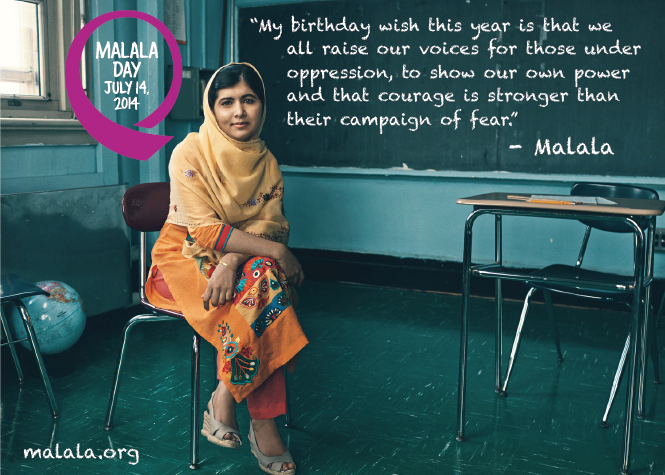
Scarcity is the limiting factor that can make life more difficult whether the scarce resource is money, time, energy, etc. It becomes more difficult to make appropriate decisions when the brain’s cognitive capacity is focused on that scarce resource. Thinking of cognitive capacity as ‘bandwidth’ allows us to realize that there is only so much bandwidth available. If we are already heavily using it, for instance, by trying to figure out how we will pay this month’s bills, there is little left over for other important decisions, such as planning how to save for a college education.
This issue of scarcity and how it affects decision-making is taken on by authors Sendhil Mullainathan and Eldar Shafirwhen scarcity pressure reduces bandwidth, there is too much going on to effectively process all that needs to be done or decided.
Mullainathan and Shafir devote a large portion of the book to discussing poverty and its relationship to scarcity and bandwidth reduction. Many of those who are poor may appear to make unfortunate decisions. It is not because they are incapable of making better choices, but because their cognitive bandwidth is over-taxed due to their inadequate resources. In one experiment, “The poor responded just like the rich when the car cost little to fix, when scarcity had not been rendered salient. Clearly, this is not about inherent cognitive capacity. Just like the processor that is slowed down by too many applications, the poor here appear [italics in original] worse because some of their bandwidth is being used elsewhere.” p. 52 “We would argue that the poor do have lower effective [italics in original] capacity than those who are well off. This is not because they are less capable, but rather because part of their mind is captured by scarcity.” p. 60
Poverty is a serious issue for the future since it affects the children. “Nearly 50 percent of all children in the United States will at some point be on food stamps. About 15 percent of American households had trouble finding food for the family at some point during the year.” p.147 Not only are children going hungry, but their parents have trouble parenting due to reduced cognitive bandwidth. “Being a good parent requires many things. But most of all it requires freedom of mind. That is one luxury the poor do not have.” p. 137 How can children do well in school when their cognitive bandwidth is occupied with hunger and a chaotic home life? “An overtaxed bandwidth means a reduced ability to process new information…Our data…suggest that much of the correlation between income and classroom performance may be explained by the bandwidth tax… Absorbing new information requires working memory.” p. 158
Many of the poor are striving for better lives for themselves and their children. A college education is now considered a basic requirement for many jobs, but the cost of a college education has sky-rocketed at the same time as grants and scholarships have become more difficult to obtain and/or cover less of the cost. Students are then forced to go heavily into debt, work while taking classes, or both. These students are experiencing scarcity of money and of time. “…the financially strapped student who misses some easy questions looks incapable or lazy. But these people are not unskilled or uncaring, just heavily taxed. The problem is not the person but the context of scarcity.” p. 65
Poverty will be a multi-generational trap that is impossible to escape if nothing is done to reduce the load on cognitive bandwidth. The poor have to constantly re-certify to get food stamps and other government programs. But the neediest often fail to do so because of the bandwidth tax: they forget. This is a tax on poverty. “To see the logic of taxing bandwidth, think about it this way. Imagine we imposed a hefty financial charge to filling out applications for financial aid. We would quickly realize that this is a silly fee to impose; a program aimed at the cash stretched should not charge them much cash. Yet we frequently design programs aimed at people who are bandwidth-stretched that charge a lot in bandwidth.” p. 222 “…the bandwidth tax was sizable: roughly thirteen to fourteen IQ points, with an equally large effect on executive control. These are … very large effects on cognitive function… the bandwidth tax plays a similarly large role in the lives of the poor everywhere.” p. 161-62
Benefits to the poor, such as food stamps, should be paid weekly rather than in one lump sum at the beginning of month. This smooths out the boom/bust cycle. We need to “…create long periods of moderation rather than spurts of abundance followed by heightened periods of scarcity.” p. 223 “The failures of the poor are part and parcel of the misfortune of being poor in the first place. Under these conditions, we all would have (and have!) failed.” p. 161
There are a number of ways in which government and business could reduce the bandwidth tax on the poor. If you are poor and have kids, having highly-subsidized day care frees up lots of bandwidth and makes life easier. “We’d be taking a cognitive load off. As we’ve seen, this would help your executive control, your self-control more broadly, even your parenting. It would increase your general cognitive capacity, your ability to focus, the quality of your work… [H]elp with child care…is a way to build human capital of the deepest kind: it creates bandwidth.” p. 176-77
Jobs paying minimum wages require those with children to work two or more jobs in order to be able to pay the bills. This situation is aggravated when these jobs do not provide consistent work schedules. “In the United States, something as simple as inconsistent work hours…can cause juggling and perpetuate scarcity. A solution would be to create the equivalent of unemployment insurance against such fluctuations in work hours, which to the poor can be even more pernicious than job loss.” p. 178
In order to solve poverty, we must realize that simply having a job is inadequate. “Now, rather than looking at education, health, finance, and child care as separate problems, we must recognize that they all form part of a person’s bandwidth capacity. And just as a financial tax can wreak havoc in one’s budget, so can a bandwidth tax create failure in any of several domains to which a person must attend.” p. 179-80 Social programs and employment structure need to be redesigned: “…a better design will have to incorporate fundamental insights about focusing and bandwidth that emerge from the psychology of scarcity.” p. 181
Our cognitive capacity bandwidth is limited. If it is taxed by inadequate pay, inconsistent work schedules, lack of childcare, unhealthy and/or insufficient diet, a polluted environment, inadequate social services and infrastructure, among many other scarce resources, it should not be surprising if the poor seem trapped in a cycle of poverty. Mullainathan and Shafir

 This data forms the basis of
This data forms the basis of  eir food, especially meat, we would not be advanced much beyond chimpanzees in brain capacity and ability.
eir food, especially meat, we would not be advanced much beyond chimpanzees in brain capacity and ability. .
.



 The way we socialize men creates violence against women.
The way we socialize men creates violence against women. 

